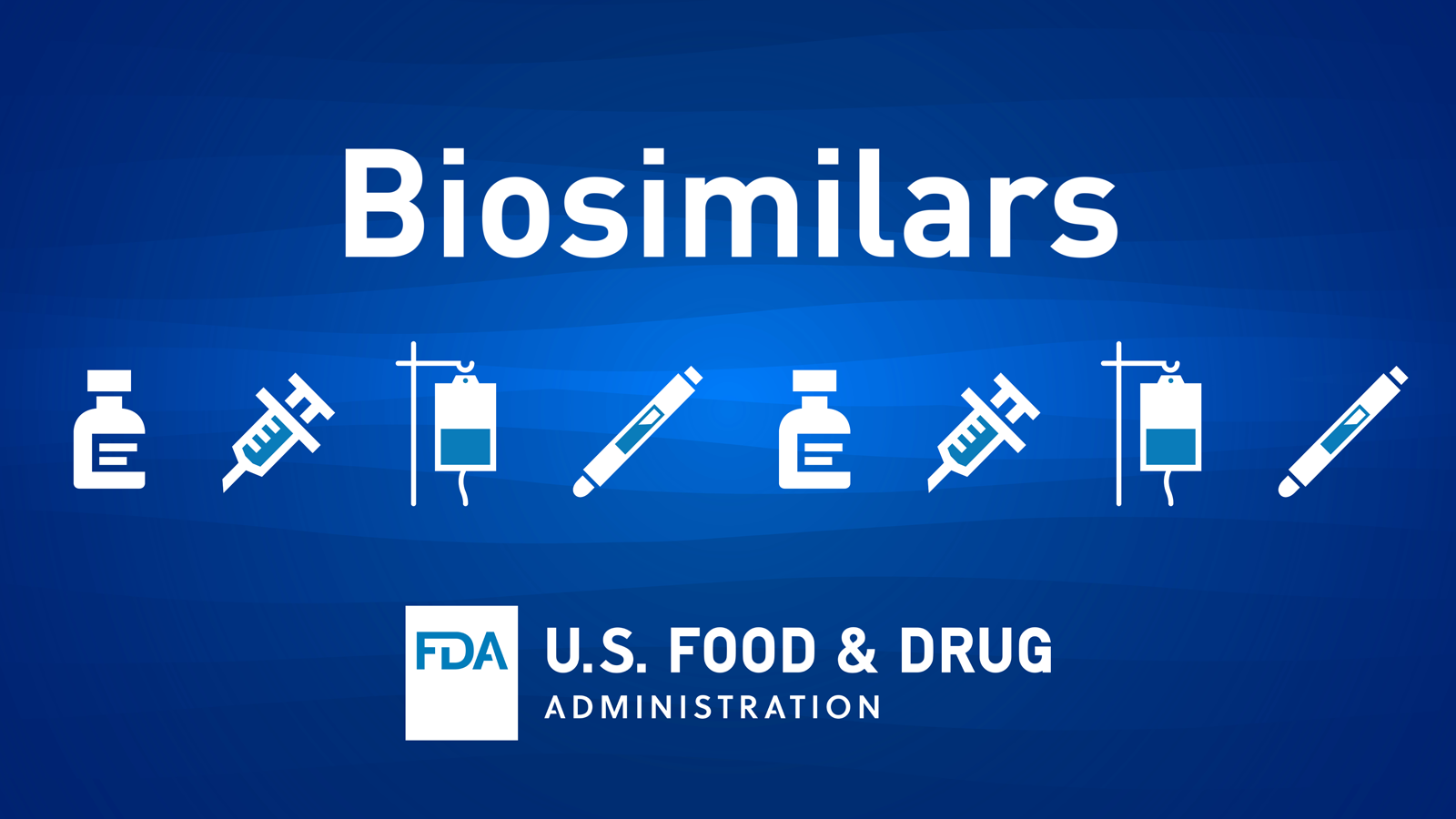The U.S. Food and Drug Administration (FDA) has approved biosimilar medications to treat conditions such as cancer, Crohn’s disease, colitis, rheumatoid arthritis, psoriasis, and more.
But what are biosimilar and interchangeable biological medications? To answer that question, it helps to first know what biological products (biologics) are.
Biologics: Medications From Living Organisms
Biologics are medicines that generally come from living organisms, which can include animals and microorganisms, such as yeast and bacteria. That makes biologics different from conventional medications, which are commonly made from chemicals.
Generally, it is relatively easy to define the structure of a conventional medicine. Unlike conventional medications, biologics can’t be made by following a chemical “recipe.” Because biologics generally come from living organisms, their nature varies, and their structures are generally more complex. Thus, developing biologics can be a more complicated process than manufacturing conventional drugs.
A biosimilar is a biologic that is highly similar to, and has no clinically meaningful differences from, another biologic that’s already approved by the FDA (known as the original biologic or reference product). Biosimilars are made with the same types of natural sources as the original medication they were compared to; they are given the same way, have the same strength and dosage, and have the same potential side effects. A biosimilar provides the same treatment benefits as the original biologic.
Biosimilars Are Safe and Effective
Biosimilars are as safe and effective as the original biologic; both are rigorously and thoroughly evaluated by the FDA before approval.
Before approving a biosimilar, FDA experts must conclude it is highly similar to the original biologic and that it has no clinically meaningful differences from the original biologic. This means you can expect the same safety and effectiveness from the biosimilar over the course of treatment as you would from the reference product. This thorough evaluation helps to ensure that all biosimilar products are as safe and effective as their reference products and meet the FDA’s high standards for approval.
In addition, the FDA closely regulates the manufacturing of biosimilars. The same quality manufacturing standards that apply to the original biologic also apply to the biosimilar. It must be manufactured in accordance with Current Good Manufacturing Practice requirements, which cover methods, facilities, and controls for the manufacturing, processing, packaging, or holding of a drug product. This helps to prevent manufacturing mistakes or unacceptable impurities and to ensure product quality.
Interchangeable Biosimilar Medications
An interchangeable product is a biosimilar that meets additional requirements outlined by the law that allows for the FDA to approve biosimilar and interchangeable medications.
There are currently no FDA-approved interchangeable medications. Once such medications are FDA approved and available in the United States, they may be substituted at the pharmacy without the intervention of the health care professional who prescribed it, much like how generic drugs already are routinely substituted for brand name drugs.
Because of the FDA’s high standards for approval, health care providers can be confident in the safety and effectiveness of a biosimilar or an interchangeable product, just as they would be for an FDA-approved reference product.
The same law that allows for the FDA to approve biosimilar and interchangeable medications also made changes to how the FDA regulates some medications. Insulin and certain other medications – such as human growth hormone (somatropin), pancrelipase, chorionic gonadotropin, follitropin, and menotropins – transitioned from being approved under the Federal Food, Drug, and Cosmetic Act to being licensed as biologics under the Public Health Service Act. As a result, it is possible for the FDA to review and approve, as appropriate, applications for biosimilar and interchangeable insulins, and other biosimilar and interchangeable products that reference transitioned medications.
Biologics are among the fastest growing segments of the prescription product market. The FDA approval of additional biosimilars and interchangeable medications will help stimulate competition. Patients will have more treatment options and potentially less expensive alternatives to approved products. For more information about biosimilar products, visit www.fda.gov/biosimilars.
Source: FDA Consumer Updates
This webpage is made possible by Topic News – a China PR Agency – online press release distribution in China, Japan, Korea and the rest of the world.

